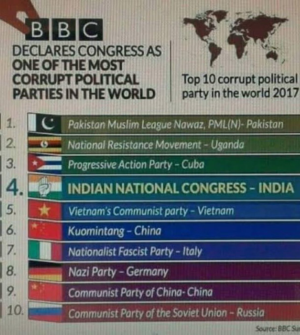66% of Businesses in India Paid Bribes to Avail Government Services, Claims Report
Businesses surveyed by LocalCircles claimed that they paid bribes to qualify as suppliers, secure quotations and orders, and collect payments.
A survey by the online platform LocalCircles found that around 66 per cent of businesses surveyed across 159 districts in India admitted to paying bribes to obtain government services.
The report notes that digitising and enhancing CCTV cameras have not deterred corrupt practices in government offices. (REUTERS)
Business firms claimed that they bribed different types of government entities in the last 12 months to qualify as suppliers, secure quotations and orders, and collect payments.
According to a PTI report, the survey was conducted between May 22 and November 30. The report claimed that 75 per cent of the total bribes reported were paid to officials of government departments such as legal, metrology, food, drug, health, etc.
Also read | Karnataka cabinet orders reopening of corruption and money laundering cases against BS Yediyurappa and Family“Many also reported paying bribes to GST officials, pollution department, municipal corporation and power department,” the report said.
In a survey that received over 18,000 responses, 54 per cent claimed they were forced to pay bribes, while 46 per cent paid voluntarily to expedite the bureaucratic process.
“As many businesses would vouch anonymously, bribes remain a way of life when wanting to get government departments to speed up the permit or compliance process, even getting duplicate copies of the authority license or anything to do with property matters. 66 per cent of businesses surveyed paid a bribe in the last 12 months,” the report said.
Also read | Noida authority junior engineer sacked, managers suspended over corruption chargesJust 16 per cent claimed to get their work done without paying a bribe, and 19 per cent said they “did not have a need” to do so.
“Of businesses that paid bribes in the last 12 months, 54 per cent were forced to do so, while 46 per cent paid it for timely processing. This kind of bribery amounts to extortion where permits, supplier qualification, files, orders, and payments are routinely held up when dealing with government agencies,” the report said.
The report notes that digitising and enhancing CCTV cameras have not deterred corrupt practices in government offices. It claims that bribes are paid behind closed doors, away from CCTVs.
“Though initiatives like the Government eProcurement marketplace are good steps to reduce corruption, there are still openings to engage in corruption for supplier qualification, bid manipulation, completion certificate and payments,” the report noted.
Also read | RTI reply: Govt paid SBI ₹11.61cr as poll bond commissionThough the survey may paint a picture of rampant corruption, the businesses surveyed claimed that the number of bribery transactions and the aggregate value of bribes paid reduced in the last 12 months.
Aakash Sharma, Deloitte India Partner, told news agency PTI that businesses tend to believe that maintaining the bare minimum regarding policies and procedures could result in no regulatory scrutiny and penal actions.
“While this approach may have been sufficient in the past, recent upward trends in corruption cases, combined with the changing regulatory landscape, require organisations to relook at their compliance framework and establish a robust anti-corruption programme,” he added.







